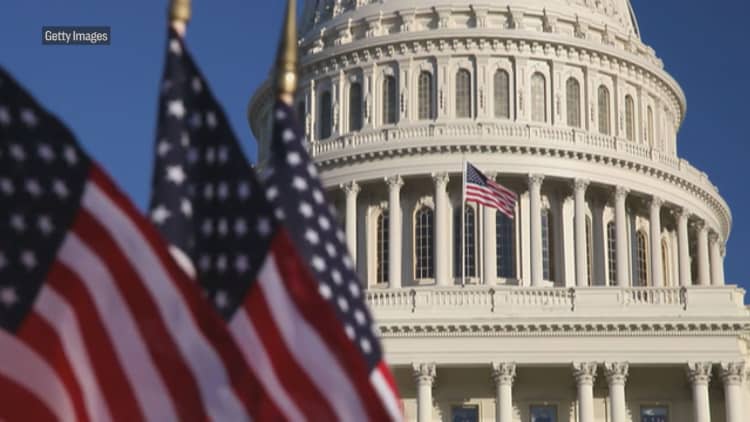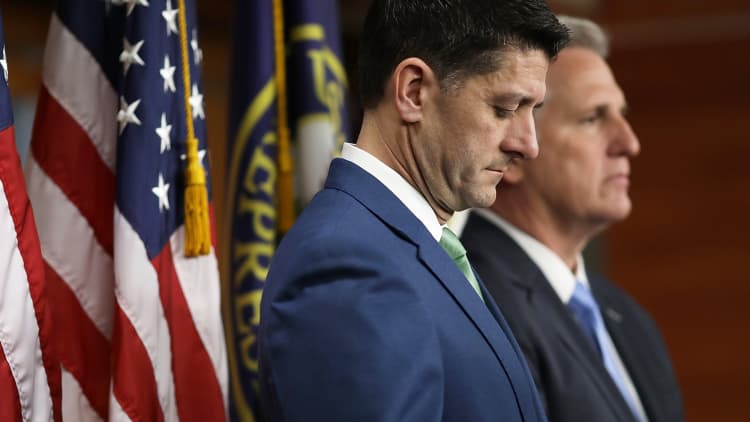
The House expects to vote next Tuesday on a Senate-passed bill that would roll back some regulations on banks, four sources told CNBC.
One source cautioned, however, that schedules can be fluid and the day of the vote could change.
The legislation would mark the biggest rewrite of financial laws since the Dodd-Frank reform act passed after the global financial crisis. It cleared the Senate with bipartisan support in a 67 to 31 vote. But some House Republicans, such as Financial Services Committee Chairman Jeb Hensarling, R-Texas, pushed for changes that could have threatened the bill's passage when it went back to the Senate.

Last week, House Speaker Paul Ryan said the chamber would take up the Senate version of the bill along with separate legislation passed by Hensarling's panel that would make additional changes to bank rules. The speaker added that he expected a vote on the banking bill "soon."
The legislation would raise the level at which banks are considered "systemically important" and exempts smaller banks from other rules aiming to curb risky behavior.
Some Democrats, while largely supporting the Dodd-Frank reforms, have argued smaller banks and lenders in rural areas should face fewer restrictions than the biggest institutions. Seventeen Senate Democrats voted for the bill.
The support came over the objections of financial industry critics such as Sen. Elizabeth Warren, D-Mass., and Sen. Bernie Sanders, I-Vt. Critics objected in part to a provision raising the threshold for an institution to be considered "too big to fail" to $250 billion in assets from $50 billion in assets. They argued it opens taxpayers up to more potential liability should a midsized bank fail.
If the House passes the bill, President Donald Trump is expected to sign it.
A source added that the House expects to take up additional legislation, backed by Hensarling, related to capital formation and better access to capital for entrepreneurs and small businesses.
The House passed those bills as part of the separate Financial Choice Act, which Hensarling pushed for last year, and as stand-alone bills. The capital measures received bipartisan support.


